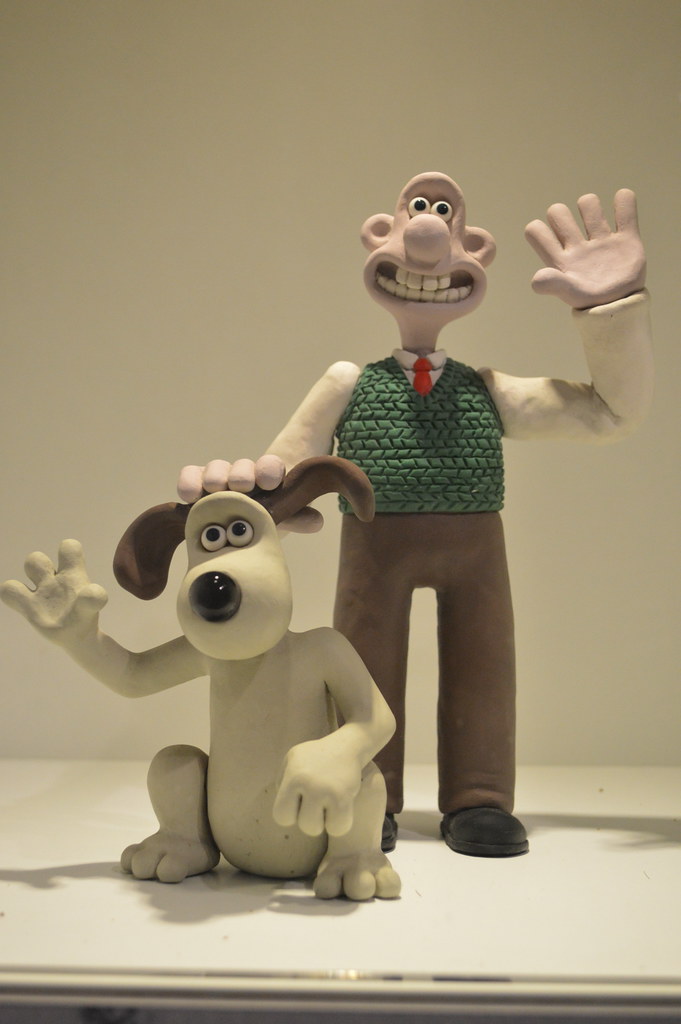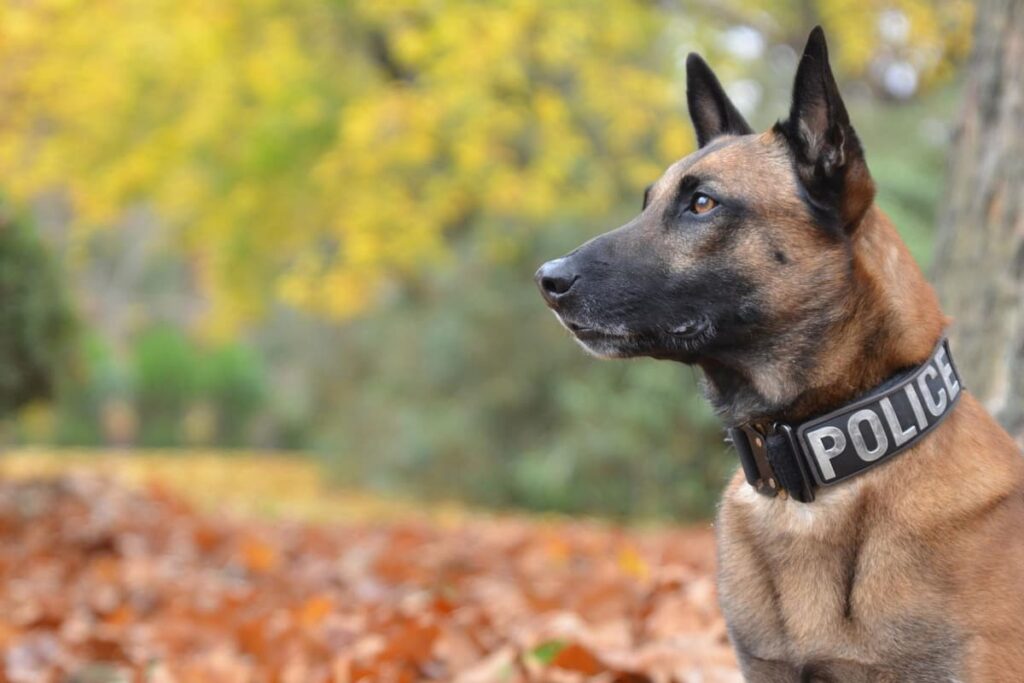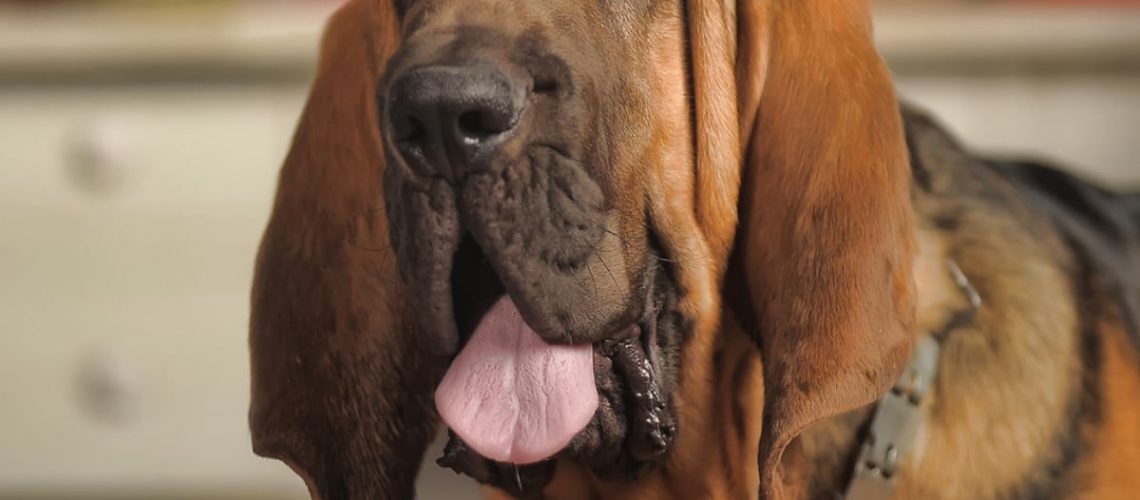Who among us hasn’t been tempted by the suggestion that there’s a single breed of dog capable of facing any challenge?
It seems that this concept is deeply ingrained in popular culture, as if a furry superhero could tackle any task, from apprehending criminals to detecting substances, all the way to personal protection. But, my friends, the time has come to abandon this fantastical illusion and confront reality.

The Fable of the “Jack-of-All-Trades” Dog
Ah, the myth of the universal working dog. The belief that there exists a dog capable of doing anything asked of it, like a true four-legged superhero. Unfortunately, in reality, things are a bit more complicated than that. No matter how adorable that German Shepherd might look, no dog can truly do it all, like a magical canine “Swiss Army Knife.”
Breaking Down the Illusion
Let’s dive into this a bit deeper. The concept of a single dog breed excelling in every task might sound appealing, but it’s far from factual. Just as humans have individual strengths and weaknesses, so do dogs. It’s like expecting an Olympic sprinter to also be a world-class chess player – it’s just not a realistic expectation.
Understanding Canine Specialization
Scientifically speaking, dogs have been selectively bred over centuries to excel in specific roles. Research conducted by Dr. James Serpell, an expert in animal behavior, highlights the immense variation in behavioral traits among different breeds. These traits are honed to suit the specific needs they were originally bred for. It’s why certain breeds, like Border Collies, are exceptional at herding, while others, like Bloodhounds, are masterful at tracking scents.
The Role of Genetics and Evolution
Genetics play a significant role in a dog’s capabilities. Dr. Stanley Coren, a recognized psychologist and dog expert, points out that certain breeds have been bred for generations to perform particular tasks, resulting in specific traits being prevalent within those breeds. Trying to fit a square peg into a round hole by forcing a dog to perform tasks it wasn’t specifically bred for can lead to frustration for both the dog and its owner.
Applying Realism in Selection
In reality, the key to a successful working dog lies in understanding a breed’s natural inclinations and selecting one that aligns with the desired task. As Dr. Serpell suggests, rather than attempting to force a breed into a role it isn’t well-suited for, it’s better to choose a breed whose instincts and traits naturally complement the job at hand.

The Deception of Oversimplification
Indeed, my friends, it’s time to bid farewell to overly simplistic generalizations. Just as a German Shepherd isn’t a carbon copy of another German Shepherd, the same holds true for us humans – no two individuals are identical. Let’s put an end to the fallacy that merely witnessing a Malinois perform a task in a YouTube video renders all Malinois as instant champions in that discipline. Alas, reality paints a far more intricate picture, and I regret to shatter any illusions.
Shattering the Myth: Expert Insights
To dismantle this illusory bubble, we turn to the wise insights of experts who navigate the intricate world of canine behavior and genetics. Dr. James Serpell, a distinguished figure in animal behavior studies, underscores the fact that breed traits can vary dramatically, influenced by a blend of genetics and environment. Just as siblings within a human family possess their unique characteristics, the same holds true for canine siblings within a breed.
The Nuanced Reality of Breed Diversity
Diving deeper, we find that breed diversity encompasses more than just physical attributes. Dr. Stanley Coren, an authority in the realm of dog intelligence, emphasizes that distinct breeds exhibit a spectrum of cognitive strengths. While a Border Collie might excel in problem-solving, a German Shepherd might showcase exceptional protective instincts. This diversity is essential for the survival of breeds in various environments.
Science Against Simplification
Science, too, rallies against the notion of universal aptitude within breeds. Dr. Kathryn Lord, an evolutionary biologist, explains that breed-specific traits arise from a complex interplay between genetics and selection pressures. Assuming uniform capabilities across all members of a breed is akin to assuming all humans are identical academically because they belong to the same nationality.
Embrace Complexity and Make Informed Choices
So, dear readers, it’s time to embrace the complexity inherent in the world of canine breeds. A Malinois might indeed be an outstanding police dog, but not every Malinois is destined for such feats. It’s vital to discard the notion that one size fits all, and instead, let’s approach breed selection with the sophistication it deserves. Choose based on the breed’s history, traits, and individual compatibility with the desired task, and you’ll find a working dog that’s an exceptional fit – not a mere stereotype.

The Specificity of Skills: Celebrating Specializations
Now, let’s delve into the captivating realm of specialization. Have you ever heard of substance detection? It’s an incredibly vital task that demands dogs with an impeccably refined sense of smell. So, do you believe your cherished Labrador is up to the job? It’s possible, but there’s a twist.
Perhaps your Labrador prefers a game of chasing its tail over sniffing out illicit substances.
The Art of Specialization: Insights from Experts
As we navigate the intricate world of working dogs, expert insights shine a light on the importance of tailoring breeds to specific tasks. Dr. James Serpell, renowned for his work in canine behavior, emphasizes that breed traits have evolved over generations to suit certain roles. While the amiable Labrador might excel at companionship, its disposition might not be perfectly aligned with tasks demanding intense focus like substance detection.
Aroma Experts: Canine Olfaction Unleashed
Dr. Alexandra Horowitz, a distinguished cognitive scientist and dog cognition researcher, emphasizes the incredible power of a dog’s sense of smell. A dog’s olfactory prowess is nothing short of astonishing, and certain breeds have honed this ability over centuries for specialized tasks like detecting drugs or explosives. This specialization ensures optimal performance in tasks requiring fine-tuned scent discrimination.
Genetics and Aptitude
Scientific studies further support the notion that genetics play a crucial role in determining a breed’s aptitude for specific tasks. Dr. Stanley Coren‘s research highlights the wide variation in intelligence and skill sets among different breeds. While a Labrador might excel in retrieving objects, a Belgian Malinois might thrive in police or search and rescue work due to its innate drive and abilities.
Matching Task with Trait
In essence, it’s about recognizing that each breed possesses unique predispositions. Just as you wouldn’t expect a world-class sprinter to excel in a marathon, choosing a breed suited to the task at hand is paramount. Before assuming that your Labrador can seamlessly transition into substance detection, it’s essential to consider its natural traits and proclivities.

Temperament, Baby! The Shocking Revelation: It’s All About Temperament
Now, let’s unveil a shocking revelation that often gets overshadowed in the world of working dogs: temperament matters. Yes, you heard it right. A dog’s temperament is the linchpin to success. Forget the notion that a working dog’s value is solely hinged on its muscles and strength. It’s time to explore the true backbone of effective working canines – their nerves of steel and rock-solid personality.
Expert Wisdom on Temperament’s Role
Experts in the field emphasize that a dog’s temperament can make or break its performance in a working role. Dr. Stanley Coren, a revered canine psychologist, underscores the significance of a stable temperament for dogs performing intricate tasks. Just as a jittery and anxious individual would struggle in a high-pressure job, a nervous and agitated dog would find it challenging to excel in the realm of law enforcement or search and rescue.
Matching Personality to Profession: Expert Insights
The canine world offers us valuable insights into the importance of temperament alignment with the intended profession. Dr. James Serpell, distinguished for his contributions to animal behavior studies, highlights how certain traits are accentuated in various breeds due to selective breeding. Consider the American law enforcement’s inclination towards hyper-agitated dogs – a preference that doesn’t necessarily align with the demands of effective police work.
The Hidden Power of a Solid Personality
Visualize this scenario: a tense and edgy Malinois attempting to work alongside law enforcement officers. Instead of taking down criminals, it might end up chasing its own tail. The lesson here is clear – it’s not just about the physical prowess; temperament is the invisible thread that holds the whole tapestry together. A well-balanced temperament enables a working dog to remain composed under pressure, follow commands diligently, and contribute effectively to the task at hand.
Striking a Balance for Success

In the end, the tale of temperament underscores the delicate dance between inherent traits and the desired role. The law enforcement’s affinity for high-energy dogs often disregards the importance of a steady temperament. By acknowledging the significance of temperament, we pave the way for a more nuanced understanding of the traits that make working dogs indispensable assets.
So, next time you admire a canine’s striking physicality, remember that beneath that exterior lies a world of temperament that can either enhance or hinder their performance. The unsung hero of the working dog world is a steadfast personality – one that’s indispensable for keeping a steady hand amidst chaos and ensuring success in a world where nerves of steel often outshine sheer muscle.

Expert Consultation – Not from Those Exploiting the State’s Purse
Now, when it comes to seeking advice on choosing a working dog breed, you must tread carefully in deciding whose counsel to heed. Avoid taking guidance from those whose primary goal is to line their pockets at the expense of your well-intentioned pursuit. Yes, I’m referring to those who care less about the welfare of your future four-legged companion and are more interested in milking your money.
Real-Life Scandals and Corruption in the Canine World
Enter the grim reality of the working dog breeding world. Some breed and breeder choices are driven by corruption and power plays. Imagine high-ranking officials, removed from the actual lives of working dogs, making decisions based on favors, connections, and sometimes, we wouldn’t be surprised, even a coin toss. They care more about their bank accounts than the effectiveness of the animal in its field.
The Importance of Genuine Expertise
This is precisely why seeking the opinion of true experts is imperative – those who don’t put their personal interests before the welfare of the animal and the efficiency of its work. Honest and capable experts have devoted their lives to understanding the realm of working dogs. They know the breeds, understand temperaments, and can distinguish between a dedicated breeder and one merely chasing quick profits.
Informed Choices, Effective Canines
Selecting the right breed for the right task is paramount in having effective working dogs on the field. Don’t let corruption and ignorance undermine your efforts. Conduct your research, seek counsel from experts who offer advice based on competence and genuine care for animals. Only then will you have a team of dogs ready to showcase their skills without being hindered by questionable decisions.
In a nutshell, exercise caution in who you trust for advice. Don’t let your hard-earned money land in the pockets of those who don’t have your best interests at heart. Research, consultation from true experts, and informed choices are the keys to assembling a team of working dogs that gets the job done right, for the greater good of all.
Unfortunately, I am fully aware that, working within a government organization, you are not the one making the decisions at hand. However, despite this reality, many hired professionals convince less experienced handlers that these choices are grounded in sound scientific and experiential foundations. Simply put: that’s not the case! Don’t be misled and always keep your mind sharp and your awareness high!



Un commento